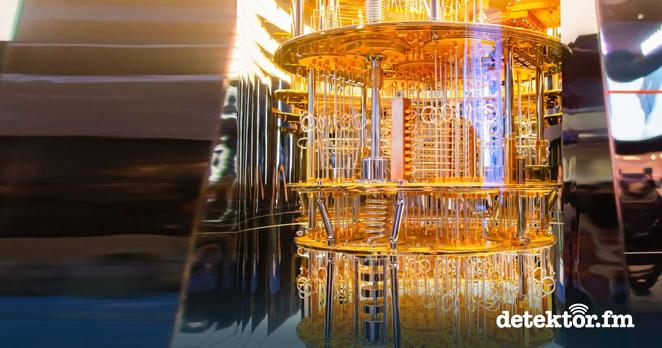
Wie sieht die Zukunft der Quantenphysik aus?
Die Quantenphysik feiert ihren 100. Geburtstag. Was wird aktuell in dem Bereich erforscht und welche Fortschritte werden kommen?

Die Quantenphysik feiert ihren 100. Geburtstag. Was wird aktuell in dem Bereich erforscht und welche Fortschritte werden kommen?
An introductory lecture on "Numerical Methods of Optimal Quantum Control" I gave some time ago finally made it to YouTube: https://www.youtube.com/watch?v=-14ftS4aNxw
re-#introduction after moving instances
Hello mathstodon! 👋
We are a computational #quantum #physics group at the Freie Universität Berlin and the Dahlem Center for Complex Quantum Systems.
Our research interests are in the #QuantumControl of atoms, molecules and condensed matter systems with an #AMO like structure as well as #QuantumInformation processing.
We are using both #CoherentControl concepts and #OptimalControl theory, applying them to isolated as well as open quantum systems.
The development of optimal control methods is a major part of our work. A current emphasis is on control methods for open quantum systems.
We collaborate with research groups all over Europe (France, Spain, Switzerland), Israel and the US.
Thanks for having us, we are looking forward to sharing and discussing research updates!
New preprint out: https://arxiv.org/abs/2309.06324
We investigate a possible realization of an ultracold-atom rotation sensor that is based on recently proposed tractor atom interferometry (TAI). An experimental design that includes generation of a Laguerre-Gaussian-beam-based "pinwheel" optical lattice and multi-loop interferometric cycles is discussed. Numerical simulations of the proposed system demonstrate TAI rotation sensitivity comparable to that of contemporary matter-wave interferometers. We analyze a regime of TAI rotation sensors in which nonadiabatic effects may hinder the system's performance. We apply quantum optimal control to devise a methodology suitable to address this nonadiabaticity. Our studies are of interest for current efforts to realize compact and robust matter-wave rotation sensors, as well as in fundamental-physics applications of TAI.
My #JuliaCon talk "Quantum Dynamics and Control with QuantumControl.jl" is now online: https://www.youtube.com/watch?v=GgA8qPGifJ8
On Thursday, Aug 24 at 10pm EDT, I will give a lecture on Numerical Methods of Optimal Quantum Control in the QuCS Lecture Series https://sites.nd.edu/quantum/quantum-computer-systems-qucs-lecture-series/
Join on Zoom at http://shorturl.at/rwMNV
For friends of #QuantumControl and #QuantumTechnologies: Out now in #PRXQuantum, our newest paper.
How do you combine feedback and gradient-based optimization of control strategies --- something that is very useful for optimizing quantum error correction and many other important tasks? "feedback GRAPE" is our answer, as a new technique:
https://link.aps.org/doi/10.1103/PRXQuantum.4.030305
Work with Riccardo Porotti and Vittorio Peano.